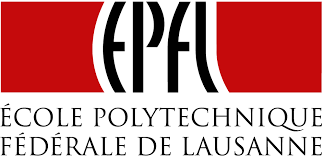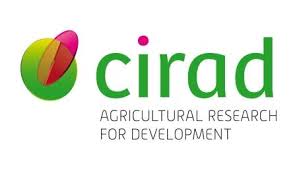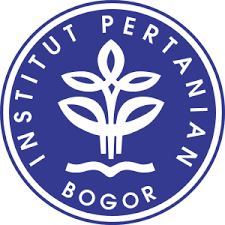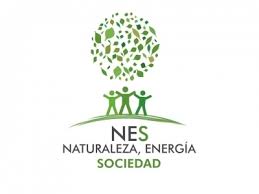
Goal
In Switzerland, the OPAL team was responsible for the overall project coordination, providing training and oversight on Companion Modelling approaches, and contributing research on biodiversity and landscape pattern, hydrological services and soil processes. Their role was also to promote outreach and project impact.
People
The coordinating office of the OPAL project was based at ETH Zurich under the leadership of Jaboury Ghazoul and Claude Garcia. Also, at ETH Zurich were Anne Dray, our Companion Modelling expert, John Garcia, our expert on biodiversity modelling, Ariane Hangartner, the coordinator, and Nur Hasanah, who completed her PhD in 2019 looking at ecosystem services links to palm oil development in Kutai Kartanegara, Indonesia.
Hydrological modelling work was done by Gabriele Manoli and Simone Fatichi, in the group of Paolo Burlando, ETH Zurich.
Our colleagues from EPF Lausanne, Thomas Guillaume and Juan Carlos Quezeda Rivera, have undertaken soil and nutrient cycling research, under the leadership of Alexandre Buttler.
Main Activities and achievements
Outreach activities
Before the Swiss vote on the trade agreement between Indonesia and EFTA countries in March 2021, we published a note on the oil palm issue in Switzerland in view of the agreement. Without giving a voting recommendation, we provided the readers with a list of facts surrounding the issue.
In May 2019, the OPAL team was invited by the German Forum für nachhaltiges Palmöl (FONAP) to demonstrate our tools and methods during a one-day workshop in Berlin. Nearly 20 people from Ferrero, industrial bakeries, Borneo Orangutan Survival, WWF Germany, GIZ, Federal Department for Envi-ronment, journalists and other NGOs dealing with sustainability.
In 2019, we started reaching out to the wider local public with several presentations by Ariane Hangartner. She presented Palmöl – besser als sein Ruf? at the ETH Treffpunkt Science City (recording available here). As a follow up she was invited to present as well at the Zero-waste shop “Ohne” in Baden, and at the Biberburg, Hirschthal AG. The presentations were well-received, and people realized that the palm oil issue needs to be considered with more nuances.
In April 2019, the ETH Team co-organized with the Embassy of Indonesia in Switzerland a large event to discuss the future of oil palm using the models developed in the three countries where we work. The event was attended by a group of Indonesian delegates and Swiss stake-holders, including the State Secretariat for Economic Affairs, ALDI Suisse, Bio Suisse, SWISS AID, SECO, Ecoinvent, Zurich Zoo, the Re-search Institute of Organic Agriculture (FiBL), among others.
Professor Jaboury Ghazoul, OPAL project leader, was invited in 2018 to an expert talk in Bern. This was organized in the context of negotiations between Switzerland and Indonesia about a free trade agreement that would include palm oil. Jaboury made the point that the oil palm issue is more complex than meets the eyes. He also stressed that the ban on palm oil for biodiesel, decided by the EU Parliament, reduces Europe’s leverage in terms of negotiating improved standards with Indonesia, and this is not very good.
Following an article in the NZZ am Sonntag, we were contacted by several stakeholders. One of them is Migros, a large retailer shop in Switzerland, with whom we have now regular contact. Subsequently, a TV documentary by NZZ about fat has been shown on Swiss TV, including interview on palm oil with our very own Jaboury Ghazoul.
In June 2018, two OPAL games were played during the public events of the Latsis Symposium 2018 – ‘Scaling-up Forest Restoration’: the German version for school children of the CoPalCam game and ComMoDo, the game developed by ETH Zürich PhD student, Nur Hasanah. The Ambassador of Indonesia in Switzerland attended the session of the Indonesian ComMoDo game and played the role of a palm oil producer. The Embassy subsequently published a press release on the event, which was picked up by several news agencies in Indonesia. An overview can be seen on this page.
A blog entitled ‘Wearing Borneo’s farmers shoes through role-playing game’ was written by facilitators of the game and published on the ETH Ambassador Blog.
In December 2016, we started engaging with stakeholders in Switzerland (e.g. NGOs in conservation and sustainability, industry, academia) by inviting them to a workshop where they played a game focused on the oil palm supply chain in Cameroon (CoPalCam). See more details here. A follow-up workshop is planned in 2017. Our objective with these workshops was to further advance the science and policy dialogue, engaging private and public institutions in Switzerland on key issues surrounding oil palm. We expect this to contribute to the debates that are currently ongoing in existing platforms.
In November 2015, we organized a public event on oil palm. A panel of four experts, from Institut de Recherche pour le Développement (IRD), WWF Indonesia, The Forest Trust (TFT) and Migros, responded to questions from a large public audience.
Disciplinary science
The ETH Hydro team tailored an existing eco-hydrological model (T&C) for application in tropical landscapes. The model has been employed to understand changes in carbon and water fluxes after tropical forest conversion to oil palm, as well as implications for oil palm yield, local water availability and impact on climate. In particular, simulation results from seven sites in Indonesia have revealed that the establishment of young oil palm plantations decreases evapotranspiration, increasing surface temperature, while intensively managed mature plantations can transpire more water than the forest they have replaced. The team also investigated the impact of oil palm expansion on other land uses (i.e. grasslands, pastures and savannas).
After a publication in Environmental Research letters, Gabriele Manoli wrote a blog called “Substitutes may make matters worse“. The text was at the same time published in German in the local newspaper Tagesanzeiger “Die Alternativen zu Palmöl sind noch schlimmer“. This text has been on many occasions the starting point for people – such as journalists, institutions or students researching on the topic of palm oil – to enter into contact with us.
The EPFL team whose aim was to understand the long term impacts of oil palm expansion on soil carbon and soil fertility has done field works in Colombia and Cameroon. They have collected many soil samples and analyzed them back in Switzerland.
Their publications also attracted media attention, and as a result the EPFL Team was regularly contacted and interviewed by journalists of the Swiss French Radio and TV. Here some examples:
Les effets de la culture des palmiers à huile sur l’écosystème (Radio RTS, CQFD, June 2018)
L’huile de palme pourrait être produite de manière durable: interview d’Alexandre Buttler (Radio RTS, Forum, November 2019)
Les forêts tropicales vont émettre plus de CO2 quʹelles nʹen captent (Radio RTS, CQDF, March 2020)
In addition, Juan Carlos Quezada and Thomas Guillaume participated in a Facebook Live following their publication in Science Advances “Carbon neutral expansion of oil palm plantations in the Neotropics”.
Companion modelling
Using the Companion Modelling approach, we worked with WWF Cameroon to develop a palm oil supply chain role playing game (CoPalCam). This was tested with experts, and then validated with local smallholder producers, even being played at ministerial level.
The CoPalCam game – describing the smallholder supply chain – was used for a companion modelling demonstration at Utrecht University in the Netherlands, with participants from Utrecht University, the University of Amsterdam, Wageningen University and WWF Netherlands.
The same game was also used twice to engage students of the Lycée Français in Zürich, and proved to be a very effective tool for promoting education and awareness of oil palm issues in school settings.
In 2018, students of ETH Zurich developed a game called UPSTREAM or La Cuenca in Spanish, which was then further developed by WWF Colombia and the OPAL Switzerland team. The model and game aim to understand how land users make decisions on water collection, and under which scenarios they could collaborate to improve governance of this resource in the region.
We organized a ComMod workshop in Indonesia in September 2016 to train local partners on the method, and are now supporting them to create a game.
Supervision of students
In 2021, Helena Mühlhaus completed her Master with the thesis: Exploring the effect of role-playing games in ecosystem management: Capturing mental models of players using mind maps. She was supervised by John Garcia Ulloa and Bin Bin J. Pearce.
Eliane Steiner who was one of the student creating the UPSTREAM game for Colombia and who later attended several workshops with stakeholders in Colombia, studied the impact of role-playing games. She completed her Masters in February 2020 with the following thesis: Using the ten principles for a landscape approach to explore the effect of a role-playing game: A case study of local water governance processes in Colombia. She was supervised by John Garcia-Ulloa, Anne Dray, Daniel Castillo.
In 2017, ETH Zürich master’s student Manuel Stamm adapted the CoPalCam game to be played in Swiss secondary schools, in and around Zürich. For this, in June 2019 he won third place in the Deutscher Planspielpreis.
In collaboration with the Word Food Systems Centre, Anne Dray initiated a master’s project, together with the catering department of ETH Zürich, to raise awareness of the sustainability of oil palm. Nora Zoller has completed her master’s thesis on ‘how different stakeholders perceive palm oil in food and its impact on the environment’. The full thesis is available here.
Publications
- The environmental impacts of palm oil in context, by Erik Meijaard, John Garcia Ulloa and others (Nature Plants, December 2020)
- Impacts of Four Decades of Forest Loss on Vertebrate Functional Habitat on Borneo, by Ocampo-Peñuela Natalia, Garcia-Ulloa John, Kornecki Itto, Philipson Christopher D., Ghazoul Jaboury (Frontiers in Forests and Global Change, 2020)
- Carbon neutral expansion of oil palm plantations in the Neotropics, by Juan Carlos Quezada, Andres Etter, Jaboury Ghazoul, Alexandre Buttler and Thomas Guillaume (Science Advances, November 2019)
- Carbon costs and benefits of Indonesian rainforest conversion to plantations, by Thomas Guillaume and others (Nature communications, June 2018)
- Banning palm oil blocks good practices, by Alejandra Rueda and Jaboury Ghazoul (ETH Zukunftsblog, October 2017)
- Learning to tackle wicked problems through games, by Claude Garcia, Anne Dray and Patrick Waeber, ETH Zurich (Blog: Integration and Implementation Insights, April 2017)
- Role-playing games as an educational tool. Adapting and evaluating the CoPalCam role-playing game on the issue of palm oil with secondary school students, Bachelor Thesis, by Manuel Stamm, ETH Zurich, Switzerland (August 2017). Appendix upon request.
- Learning begins when the game is over, by Claude Garcia, Anne Dray and Patrick Waeber, ETH Zurich (Gaia, December 2016)
- La transdisciplinarité, un jeu d’enfant? Comprendre le moteurs du changement en milieu forestier tropical, by A. Dray, E. Fauvelle, P. Levang, E. Ngom, J. Ghazoul and C. Garcia (Hotspot, October 2016). Also available in German: Transdisziplinarität: ein Kinderspiel? Ursachen für Umweltprobleme erkennen und verstehen.
- How do different stakeholders perceive palm oil in food and its impact on the environment? Master Thesis, by Nora Zoller, ETH Zurich (May 2016)
- Declining palm oil prices: Good news and bad news for smallholders, by Jaboury Ghazoul and others (Mongabay, March 2015)
- Of pastures and oil palm, by John Garcia-Ulloa (ETH Zukunftsblog, March 2015)












